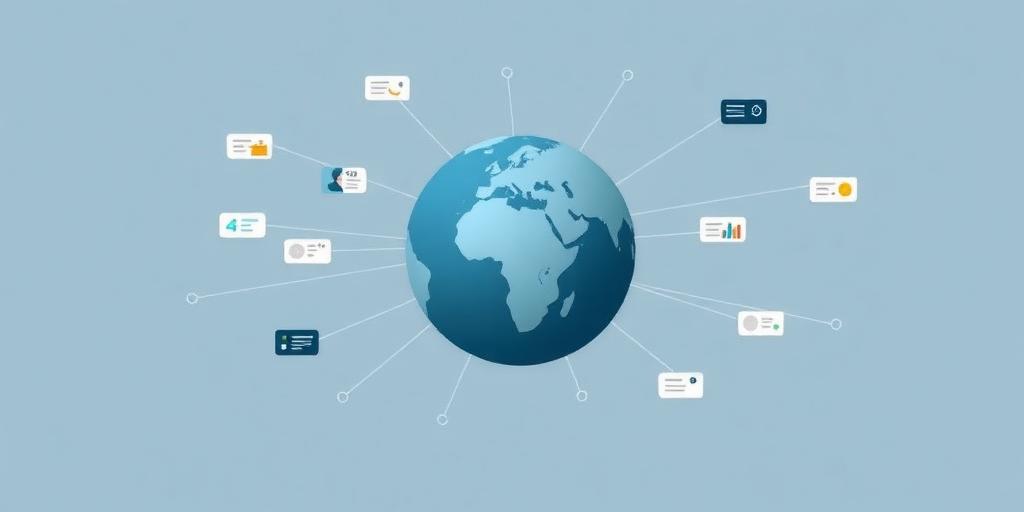The Psychology of Consuming World News
In today's interconnected world, access to news from across the globe is easier than ever. We are constantly bombarded with updates on political events, economic shifts, social issues, and crises unfolding in distant lands. While staying informed is generally considered a virtue, the psychological impact of consuming world news can be complex and, at times, detrimental. Understanding these psychological effects is crucial for maintaining a healthy relationship with the news and safeguarding our mental well-being.
The Appeal of World News
Several factors contribute to our fascination with world news:
- Innate Curiosity: Humans are naturally curious beings. We are drawn to novelty and information that helps us understand the world around us.
- Social Connection: Knowledge of current events allows us to participate in conversations and connect with others on shared interests and concerns.
- Sense of Control: Being informed can create a sense of control and preparedness, even in the face of uncertain global events.
- Empathy and Compassion: World news can evoke feelings of empathy and compassion, motivating us to support humanitarian efforts and advocate for positive change.
The Psychological Impact
However, the consumption of world news is not without its potential downsides:
- Increased Anxiety and Stress: Constant exposure to negative news, such as reports of conflict, disasters, and political instability, can trigger anxiety and stress responses. This can lead to feelings of helplessness and overwhelm.
- Cognitive Overload: The sheer volume of information available can lead to cognitive overload, making it difficult to process and retain information effectively. This can result in a feeling of being constantly bombarded and unable to focus.
- Negative Mood and Pessimism: A steady diet of negative news can contribute to a pessimistic outlook and a general sense of unease about the future. This can affect our mood, motivation, and overall well-being.
- Vicarious Trauma: Exposure to graphic or disturbing news content, particularly related to traumatic events, can lead to vicarious trauma. This involves experiencing emotional distress and psychological symptoms similar to those experienced by direct victims of trauma.
- Confirmation Bias and Polarization: We tend to seek out news sources that confirm our existing beliefs and values. This can lead to confirmation bias, where we selectively attend to information that supports our views and dismiss information that contradicts them. This can contribute to political polarization and social division.
Strategies for Healthy News Consumption
To mitigate the negative psychological effects of consuming world news, consider the following strategies:
- Limit Your Exposure: Set boundaries for how much time you spend consuming news each day. Avoid constant monitoring of news feeds and alerts.
- Choose Reliable Sources: Seek out reputable news organizations that adhere to journalistic standards of accuracy and objectivity. Be wary of sensationalism, bias, and misinformation.
- Balance Negative and Positive News: Make an effort to seek out positive and uplifting stories that highlight progress, resilience, and human kindness.
- Take Breaks and Practice Self-Care: Engage in activities that promote relaxation and well-being, such as exercise, meditation, spending time in nature, or connecting with loved ones.
- Engage in Constructive Action: Channel your concerns and anxieties into constructive action by supporting relevant causes, volunteering your time, or advocating for policy changes.
- Seek Professional Help: If you are experiencing significant anxiety, stress, or other psychological symptoms related to news consumption, consider seeking help from a mental health professional.
Conclusion
Staying informed about world events is important, but it is equally important to be mindful of the psychological impact of consuming news. By adopting healthy news consumption habits and prioritizing our mental well-being, we can navigate the complexities of the modern world without sacrificing our peace of mind. Remember, it's not about ignoring the news, but about engaging with it in a way that empowers us to be informed, engaged citizens without succumbing to overwhelm or despair. By understanding the psychology behind our news consumption, we can make conscious choices that protect our mental health while staying connected to the world around us. This balanced approach allows us to remain informed, engaged citizens without sacrificing our overall well-being. Remember, knowledge is power, but so is taking care of your mental health. Prioritize both, and you will be well-equipped to navigate the complexities of our ever-changing world.









